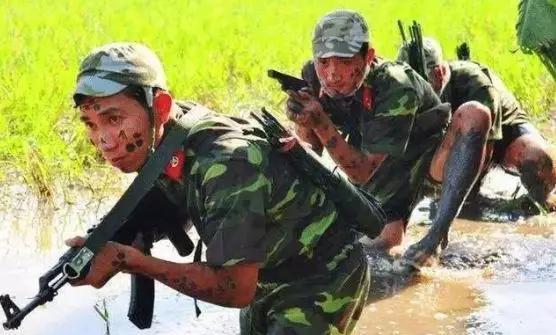
After the end of the War to Resist US Aggression and Aid Vietnam in 1975, Vietnam gained reunification. With the support of the Soviet Union, Vietnam's ambitions swelled, shouting the slogan of the world's third military power, known as "the little overlord of Southeast Asia." "During the Vietnam War for more than a decade, Chinese-aided rice and Soviet-aided weapons gave Vietnam a sufficient material and military foundation. So Vietnam began to encroach on the Sino-Vietnamese border and constantly carried out armed provocations. The invasion of Cambodia, China's southern ally, at the end of 1978, was a naked regional hegemonism and a serious threat to China's peripheral security.
In the face of Vietnam's hegemonic behavior, our side has protested countless times, but all of them have been ineffective. Therefore, in order to maintain national security and stability, in order to unite people's hearts and minds, this battle must be fought. On the eve of and during the war against Vietnamese self-defense, Deng Xiaoping said 5 words in public, which made Vietnam instigate for 38 years. Deng Xiaoping's diplomatic style is known for its witty humor, optimism and humor, but under the humorous discourse, it is an unquestionable hard-line style, which Vietnam has deeply understood.
Sentence 1: Vietnamese children are disobedient and want to spank
This is a sentence that Deng Xiaoping said in public during his visit to the United States on January 29, 1979, and it was both humorous and hard-hitting. Deng Xiaoping's words were very artistic, a declaration of war on Vietnam. He also expressed that the intention of our military to use troops is to teach Vietnam a lesson, and the scale of using soldiers is spanking, that is, disciplinary war. This sentence also shows China's determination to fight a counterattack in self-defense against Vietnam.
Sentence 2: It is necessary to impose sanctions on Viet Nam
When Deng Xiaoping returned from his visit to the United States and visited Japan, when discussing the Vietnamese issue, Deng Xiaoping once again stressed: "It is necessary to impose sanctions on Vietnam. ”
Sentence 3: It is currently being considered that action should be taken at some risk in order to punish the aggressor
Deng Xiaoping said: "If the aggressors are not punished, there is a danger of a chain reaction." It is being considered that, in order to punish, some kind of risk will also be taken. People from Japan's Ministry of Foreign Affairs were very surprised by Deng Xiaoping's words and deeds, believing that this was a rare use of harsh language in the history of Chinese diplomacy.
Sentence 4: We Chinese talk counts
However, Vietnam did not take Deng Xiaoping's two words seriously, believing that China was frightening people and did not dare to really do it. Vietnam's ambitions, far from diminishing, were growing, mainly because Vietnam believed that China was somewhat afraid of the strong support of the Soviet Union. Faced with Vietnam's ambitions, Deng Xiaoping said: "We Chinese words count." Sure enough, on February 17, 1979, China launched a counterattack in self-defense against Vietnam.
Sentence 5: Vietnam must withdraw its troops cleanly and thoroughly from Cambodia
When Lao leader Khaisan Fong Wai Han visited China, Deng Xiaoping particularly stressed that Vietnam must withdraw its troops cleanly and thoroughly from Cambodia. He asked Kai Shan to convey these comments to Nguyen Van Ling. In addition, Deng Xiaoping also said a meaningful sentence: "Ruan Jishi is a person who loves to make small moves." Deng Xiaoping asked KaiShan to convey this to Nguyen Van Ling, saying that he hoped that before or shortly after his retirement, the Cambodian issue would be resolved and Sino-Vietnamese relations would return to normal.
In the Sino-Vietnamese War in 1979, these 5 sentences said by Deng Xiaoping were quite tough and had the style of Chinese hawks, and Vietnam instigated it for 38 years, and for 38 years it did not dare to trouble China